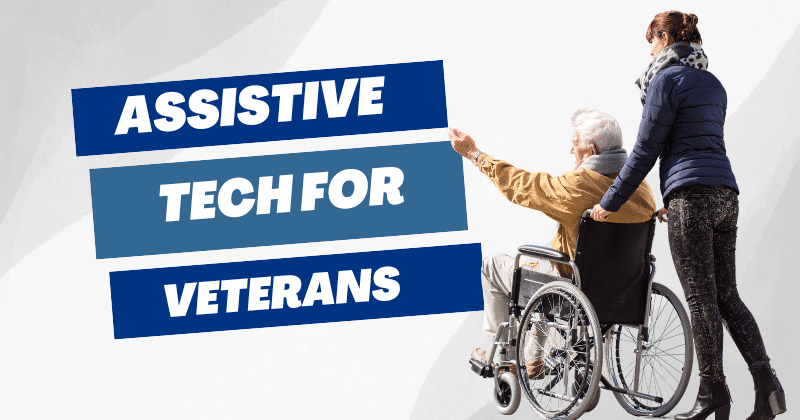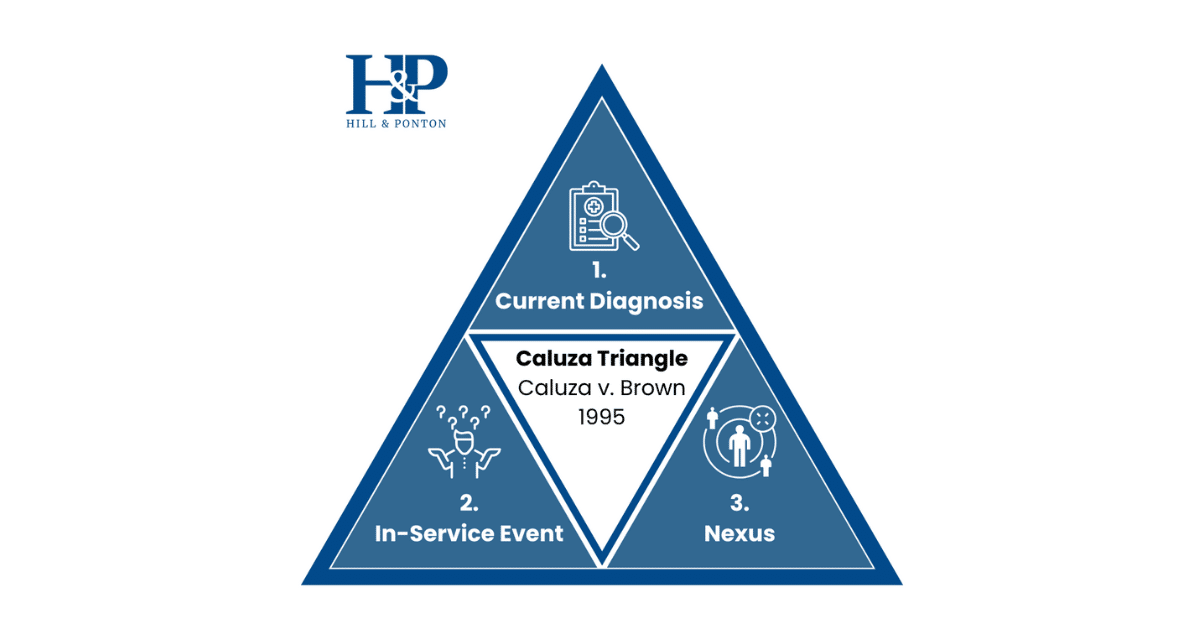Assistive technology is any device or tool that is designed to help people with disabilities to perform tasks, increase mobility, or improve their overall quality of life.
For disabled veterans, assistive technology can be a game-changer, enabling them to live independently and participate more fully in everyday life.
In this guide, we will provide an overview of some of the different types of assistive technology that are available for disabled veterans, along with information on how to access them.
We will cover devices and tools that can help with mobility, communication, hearing, vision, and more.
Additionally, we will discuss how to prepare for an assistive technology evaluation, how to select the right technology for your needs, and how to obtain funding and support for your assistive technology needs.
With the right assistive technology, disabled veterans can lead more fulfilling and independent lives.
These are just a few examples of the different categories and types of assistive technology available for disabled veterans.
Mobility Aids
Mobility aids are assistive devices designed to help individuals with mobility impairments to move around more easily and independently.
For veterans who have been injured or disabled while serving in the military, mobility aids can be critical in helping them regain their independence and improve their quality of life.
Some of the most common mobility aids for veterans include canes, crutches, walkers, and wheelchairs.
Canes are a simple and lightweight option for individuals who need assistance with balance or stability while walking.
Crutches provide additional support and are often used by individuals with lower limb injuries. Walkers are larger devices that provide support for the upper body as well as stability for the lower body.
And wheelchairs, which come in manual and electric options, provide complete mobility assistance for those who are unable to walk or stand.
In addition to these basic mobility aids, there are also more advanced options available to veterans, such as prosthetic limbs and exoskeletons.
Prosthetic limbs are designed to replace missing limbs, allowing veterans to perform everyday activities with greater ease and independence.
Exoskeletons are wearable devices that provide powered assistance to the user’s legs, enabling them to stand and walk again.
Communication Aids
Communication aids are assistive devices designed to help individuals with speech or hearing impairments to communicate more effectively with others.
For veterans who have suffered from injuries or disabilities that affect their ability to speak or hear, communication aids can be essential in helping them to stay connected with their loved ones and to communicate effectively with healthcare providers and other caregivers.
There are many different types of communication aids available to veterans, depending on their specific needs and preferences.
Some of the most common options include speech-generating devices, text-to-speech software, and communication boards.
Speech-generating devices are electronic devices that allow users to create speech using text or symbols, which are then converted into spoken words.
Text-to-speech software, on the other hand, allows users to type out what they want to say on a computer or mobile device, which is then converted into spoken words by the software.
Communication boards are physical boards or books that contain pictures or symbols that users can point to in order to convey their messages.
Hearing Aids
Hearing loss is a common issue that affects millions of people, including many veterans. Exposure to loud noises during military service, such as gunfire or explosions, can cause hearing damage.
Fortunately, hearing aid devices can help veterans with hearing loss to improve their quality of life. The Department of Veterans Affairs (VA) offers hearing healthcare services to eligible veterans, including hearing aid devices.
The VA provides hearing aid devices to eligible veterans at no cost, as long as the hearing loss is connected to military service. Veterans can schedule an appointment with an audiologist to determine the level of hearing loss and whether a hearing aid device is necessary.
The VA offers a wide variety of hearing aid devices, including in-the-ear (ITE), behind-the-ear (BTE), and receiver-in-canal (RIC) models. The specific type of hearing aid device recommended will depend on the individual’s level of hearing loss, lifestyle, and personal preferences.
In addition to providing hearing aid devices, the VA also offers ongoing support to veterans with hearing loss. This may include regular follow-up appointments with an audiologist to adjust and maintain the hearing aid device, as well as counseling and rehabilitation services to help veterans adjust to living with hearing loss.
The VA also provides assistive listening devices, such as amplified telephones and alerting devices, to help veterans with hearing loss communicate effectively and stay safe.
Vision Aids
Many veterans experience vision problems as a result of their service. Whether it is due to injuries sustained during combat, exposure to hazardous materials, or other factors, impaired vision can have a significant impact on their quality of life.
Fortunately, there are many vision aids available that can help veterans to overcome these challenges and maintain their independence.
One of the most common types of vision aids for veterans is a magnifier. Magnifiers can be handheld or mounted on a stand, and they work by increasing the size of text and images to make them easier to see.
They can be especially helpful for reading small print on medication bottles, books, and other materials.
Another type of vision aid is a CCTV (closed circuit television) system, which uses a camera and a monitor to magnify and display text and images.
CCTV systems can be especially helpful for veterans with low vision who have difficulty with activities such as writing, cooking, and cleaning.
Some veterans may also benefit from special glasses or contact lenses. These devices can correct a wide range of vision problems, from nearsightedness to astigmatism.
In addition, there are many types of adaptive technology available that can help veterans to use computers, smartphones, and other devices more easily.
For example, screen readers can read text out loud, while voice recognition software can allow users to control their devices with spoken commands.
Ultimately, the best vision aid for a veteran will depend on their specific needs and the nature of their vision impairment.
Home Modifications
Home modifications can play a critical role in helping disabled veterans to live safely and independently in their own homes.
These modifications can range from simple adjustments, such as installing grab bars in the bathroom, to more complex renovations, such as building a ramp or widening doorways to accommodate a wheelchair.
One of the most common types of home modifications for disabled veterans is the installation of grab bars and other assistive devices in the bathroom.
These devices can provide additional support and stability for veterans with mobility challenges, making it easier for them to use the toilet, shower, and bathtub.
In addition, handrails and stairlifts can be installed on staircases to help veterans navigate multi-level homes safely.
Another important consideration for disabled veterans is accessibility.
This may involve installing ramps, widening doorways, or even building a ground-level addition to the home.
These modifications can make it easier for veterans who use mobility aids, such as wheelchairs or scooters, to move around their homes with greater ease.
In addition to physical modifications, technology can also play a key role in helping disabled veterans to live independently. Smart home technology, such as voice-activated assistants, can be used to control lights, temperature, and other features of the home.
This technology can be especially helpful for veterans with limited mobility or dexterity.
In conclusion, mobility aids, communication aids, hearing aids, vision aids, and home modifications are essential resources that can significantly enhance the lives of disabled veterans.
These assistive devices and modifications provide much-needed support and promote independence, allowing veterans to overcome physical limitations and maintain a high quality of life.
From canes and wheelchairs to speech-generating devices and magnifiers, the array of options available caters to individual needs and preferences.
The Department of Veterans Affairs (VA) offers comprehensive support, providing access to a wide range of assistive devices, hearing aid services, and home modifications at no cost to eligible veterans.
With the aid of these resources, veterans can regain their autonomy, reconnect with loved ones, and navigate their daily lives with greater ease.
If you or a veteran you know could benefit from these services, we encourage you to reach out to the VA to explore the available options and take the necessary steps towards improved mobility, communication, hearing, vision, and home accessibility.




